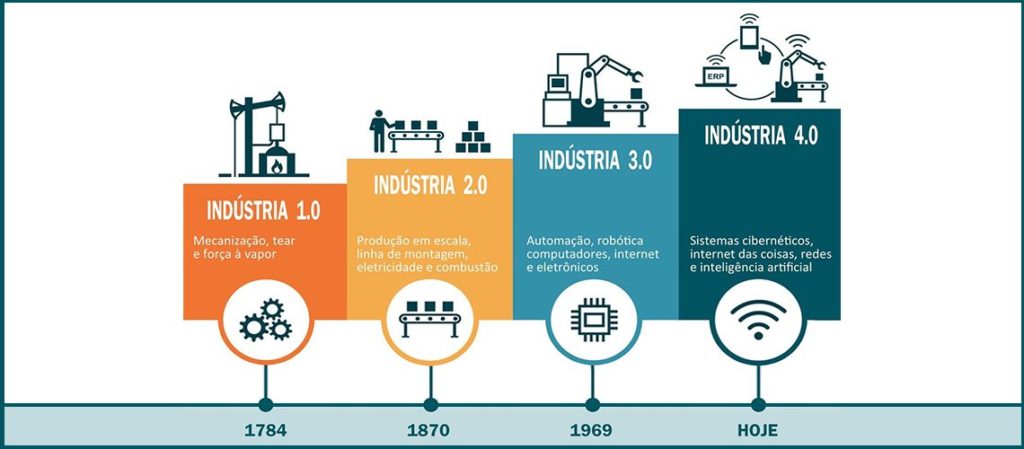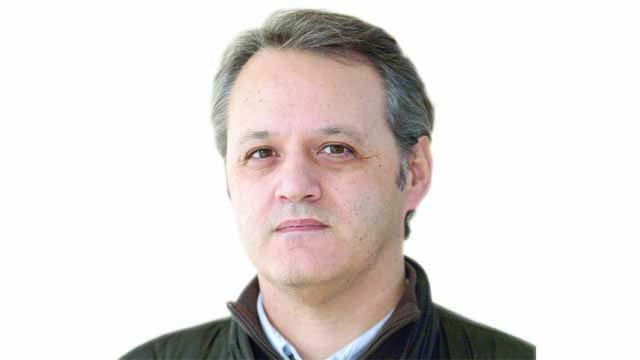In order to better understand if we are facing a new industrial revolution, in what is called Industry 4.0, I asked the Professor Norberto Pires to answer some questions about this extremely important subject that will have, or is already having, a profound impact on society.
Norberto Pires is a professor at the Department of Mechanical Engineering at the Faculty of Science and Technology at the University of Coimbra.
Q – What is Industry 4.0?
R – It is the name given to an international initiative whose objective is to regain the industry's competitiveness and productivity.
It was born in Germany in 2015, and is proposed as a 10-year plan that aims to achieve these goals by revolutionizing the logistics chain associated with all industrial transformation processes, that is, the path between raw materials and the end customer. In fact, the phenomenon of globalization has posed great challenges to Western economies.
The first response of the companies was to relocate means of production to places where the costs of the context (wages, taxes, energy costs, etc.) were lower and, in addition, try to gain dimension by aggregating several companies. This allowed, on the one hand, to regain competitiveness, as costs were lower, but also more efficiency and specialization, as larger organizations facilitate these transformations.
This answer proved, however, and as expected, not very sustainable, as it did not solve the problem and only postponed it. By failing to grow consistently and robustly, Western economies face a new problem, because without growth the new generations will not have a better life, as they are already beginning to see, and the available wealth, with the increase in population, is dividing by more people. This opens up space for tensions, conflicts, problems with migrations, etc.
The loss of competitiveness takes resources away from our social model and calls into question many of the civilizational achievements we have made since the 1st industrial revolution (1760).
Q – Can you point out other identifying characteristics of this Industry?
R – Industry 4.0 must be seen in a general framework of the way we live and work, as a response to the challenges and loss of COMPETITIVENESS and consequently of GROWTH, caused by Economic GLOBALIZATION.
It is intended, in fact, to be the support of a great transformation (and this is the real REVOLUTION) in the current supply chain (logistics chain) creating a highly efficient Digital Ecosystem that allows for gains in competitiveness.
This means the ability to react in real time to disruptions in the supply chain, if possible, anticipate them, completely modeling the network, creating, for example, scenarios "what-if” – favorable environment for artificial intelligence, etc., in order to adjust the supply chain in real-time to changing conditions.
Q – Can we identify a main objective of Industry 4.0?
A – The new “revolution” aims to produce better, which means making the path between raw materials and the end customer more efficiently.
This has a significant impact on all areas of human work, especially in factories, but also on material selection, distribution, the way we work and live – that is, throughout the entire supply chain.
Q – Where did Industry 4.0 start?
A – It is fair to say that despite being born in Germany, under the proposal of an international consultant who worked for the powerful German industry, the concept of “Industry 4.0” is not new.
It had been presented about a year before, by President Obama, in the USA, under the name of “Manufacturing Challenge” and had, essentially, the same objectives. It is not a revolution in itself, but a plan for technological evolution (something desperate, as it is critical to our social model), which allows us to put in place new techniques to completely transform the way we produce.
The result may, in fact, be a revolution. But we will have to wait for the results.
(Continued)
Author Antonio Piedade
Science in the Regional Press – Ciência Viva



















Comments